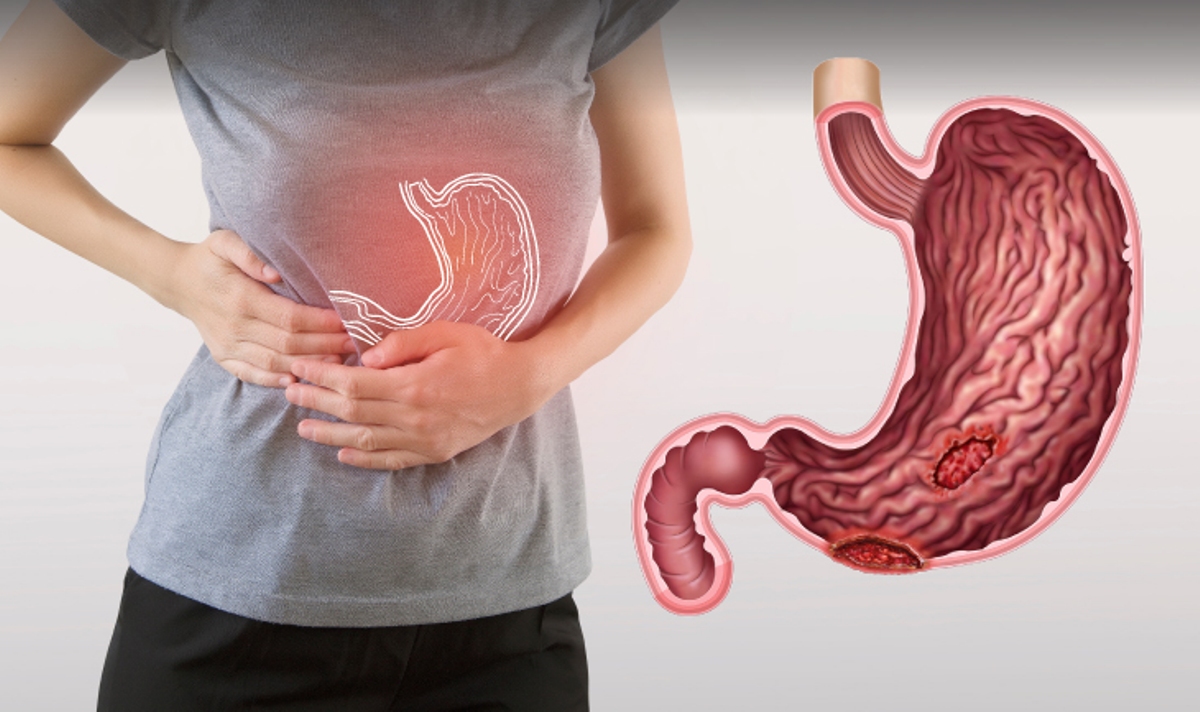KATHMANDU: Gastric issues are a common problem among the Nepali population.
Doctors indicate that gastritis, which traditionally affected elderly individuals, is now increasingly observed in people of all ages due to unhealthy eating habits and lifestyles.
Gastritis refers to a range of symptoms resulting from various stomach issues.
These symptoms can vary from mild discomfort to severe complications, including abdominal cramping, bloating, and excessive diarrhea.
Some individuals may also experience symptoms associated with ulcers.
In a conversation with Dr. Pawan Parajuli, a gastroenterologist at Birat Nursing Home in Biratnagar, we explore the nature of ulcers, their causes, the current state of ulcer patients in Nepal, and preventative measures.
What kind of disease is ulcer?
In layman’s terms, an ulcer refers to a sore. Specifically, an ulcer in the stomach or the initial part of the small intestine is termed a gastric ulcer.
What causes ulcers?
Our bodies possess both factors that contribute to and protect against ulcers.
The stomach has multiple defense mechanisms to guard against ulcer formation.
However, an imbalance caused by our diet can lead to ulcers.
In Nepal, a bacterium known as Helicobacter pylori is a common culprit behind these conditions.
Are ulcers a result of gastric issues?
Ulcers represent a more severe outcome of gastric problems. Initially, symptoms such as stomach burning and pain are indicative of gastritis.
If an endoscopy reveals lesions, then an ulcer is present.
Common symptoms of gastritis include bloating and flatulence, and neglecting these signs can ultimately lead to ulcer formation.
How can you determine if you have an ulcer?
Gastric and ulcer symptoms often overlap, with both presenting issues like bloating, pain, and burning sensations.
However, larger and deeper ulcers may cause additional symptoms, such as bleeding and black stools.
What tests are needed to diagnose an ulcer?
There is no specific test exclusively for ulcers. Patients exhibiting gastric-like symptoms undergo various investigations.
For patients under 40-50 years of age, medications may be prescribed without extensive testing.
However, if symptoms such as vomiting, bleeding, or black stools occur, these are considered serious and require endoscopy.
For older patients, a standard gastric endoscopy is recommended, as some may develop cancer rather than ulcers.
Given the similarities in initial symptoms between cancer and ulcers, endoscopy is advisable for older individuals experiencing common gastric issues.
Can ulcers increase the risk of cancer?
This risk is relatively low but significant if ulcers remain untreated over time.
Prolonged untreated ulcers may eventually develop into cancer, as the bacteria responsible for ulcers can also promote cancerous changes.
Timely treatment of the bacteria can help prevent cancer development. Recent advances in treatment, such as the urea breath test and stool tests, can help identify the presence of Helicobacter pylori, the bacterium responsible for ulcers.
What Is the condition of ulcer patients in Nepal?
In the past, various surgical procedures were performed to treat ulcers, but this is less common now.
Most ulcers can now be managed effectively with medication. Although ulcers have a low likelihood of leading to cancer, rising urbanization and unhealthy eating habits have contributed to an increase in ulcer cases.
The trend of consuming burnt meat, fast food, and junk food has led to a higher incidence of ulcers, and if not treated promptly, this can elevate the risk of cancer.
What can be done to prevent ulcers?
To avoid ulcers, the foremost step is to prevent gastric issues. This includes avoiding unnecessary medications, such as painkillers.
Additionally, the bacteria that cause ulcers can spread like those that cause diarrhea, so it’s crucial to ensure clean drinking water.
Always boil and filter water before consumption.
Using medications to eradicate the bacteria at the first signs of symptoms can mitigate future ulcer risks.
Since gastric ulcers are diet-related, it’s essential to reduce the intake of fast food, junk food, and fried items.
Eating regular meals and limiting strong tea and coffee can further decrease the risk of developing ulcers.
How likely is it for ulcers to recur after treatment?
Even after successful treatment, there is a high chance of recurrence if the ulcer-causing bacteria re-enter the body.
Since lifestyle and dietary choices play significant roles in this disease, neglecting healthy habits can maintain the risk.
Therefore, individuals must remain vigilant about their dietary choices and health practices to reduce the likelihood of future issues.









Comment